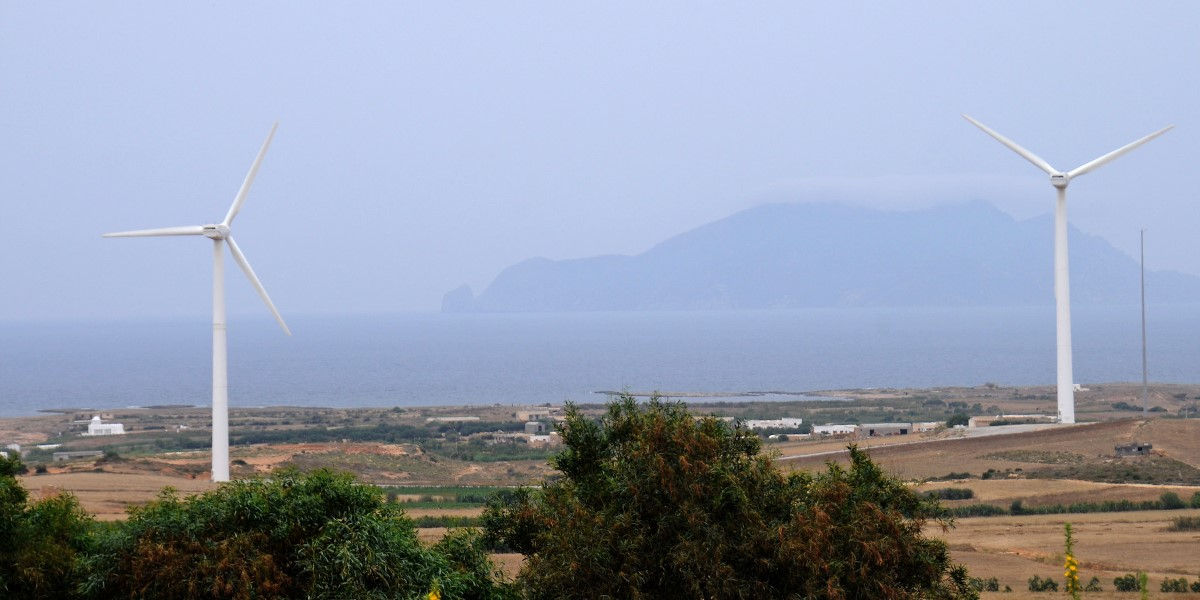Since the 2011 revolution Tunisian governments have consistently failed to implement progressive public sector reforms and succumbed instead to the demands of global institutions such as the IMF. The Société Tunisienne de l’Electricité et du Gaz (STEG, Tunisia’s national electricity and gas operator, which has been wholly owned by the state since 1962) has been one of the targets of these plans. The public company succeeded in electrifying almost all of Tunisia on a continent that boasts some of the lowest electrification rates in the world. The aim of these plans was to privatise production and liberalise prices despite strong public opposition.
In 2013, the law was changed to allow the production of electricity through renewable energies. Undoubtedly, Tunisia needs to rapidly increase renewable energy production, become less dependent on neighbouring countries such as Algeria and transition towards a green economy. The unions, however, viewed this move as a way to introduce privatisation by stealth and resisted the new law. This resistance delayed its ratification but it eventually came into force in 2015.
The new era of renewable energy production incentivised foreign investment in Tunisia, prompting serious questions about state control and democratic oversight of new projects. As the popular refrain puts it, ‘Transition is inevitable, justice is not.’
Further amendments to the law allowed companies to build their projects on agricultural land without applying for a formal recognition of land use change from the government. This risked placing Tunisia’s substantial agricultural wealth in the hands of big renewable energy investors looking to make a quick return.
Who benefits?
Recent experience has shown that grand infrastructure projects do not necessarily bring tangible benefits to the Tunisian people. In 2000, the first wind turbine project in the country was established around 70 kilometres away from the capital, Tunis. The project, home to 40 or so wind turbines, has been providing energy to 50,000 Tunisians, yet residents of the nearby town, Borj Salhi, remain unconnected to the national grid. The local residents have remained in dispute with STEG, which owns the windfarm, for well over a decade without any satisfactory outcome.
The new era of renewable energy production incentivised foreign investment in Tunisia, prompting serious questions about state control and democratic oversight
In this context, the amendments to the initial 2015 law met further opposition from the sector’s trade unions, and on 6 March 2020, the unions decided not to connect any further private renewable energy plants to the national grid. This was an embarrassing turn of events for the government, which was itself under significant pressure from global financial institutions, whose support was contingent on the connection of private power plants. The government threatened legal proceedings against trade unionists and insisted they go through with planned reforms.
The unions, however, stood firm. This unprecedented fight in defence of the public sector has been applauded by many trade union organisations around the world. These include the global initiative Trade Unions for Energy Democracy (TUED), as well as the General Confederation of Labour (Confédération Générale du Travail (CGT) in France. The CGT declared solidarity with the Tunisian unions after they refused to connect a private power plant in southern Tunisia in late 2021.
Huge mobilisation
Tunisia’s energy struggles have not been limited to renewables. STEG suffered from a clause in the government’s agreement with the IMF in 2013 stipulating that STEG was to be solely responsible financially for the direct purchase of natural gas, mainly from neighbouring Algeria. Without state subsidy, this move essentially bankrupted the company because electricity prices are decided by the state.
These often fail to cover the costs of energy production and distribution borne by STEG, for which the state previously met the difference. The situation is such that STEG is largely reliant on the state for continued revenue. After a huge mobilisation, the unions forced the government to u-turn in January 2018, reimbursing STEG for losses incurred during this period.
Alongside direct negotiations with the government, the electricity and gas sector trade unions also launched huge public awareness campaigns regarding the dangers of privatised energy. Based on studies of the failing private power stations located to the south of the capital and run by foreign companies, the unions aimed to persuade the public to encourage management not to renew one company’s contract. The unions’ campaign was ultimately successful, the extension of the contract (due in May 2022) never materialised and the plant became the property of STEG.
This victory has been an important boost in the fight for a democratically-controlled and publicly-owned energy sector in Tunisia. The unions are aware, however, that the fight is not over. The risk of privatisation remains and will continue to grow given the uneven balance of power between big business and progressive movements in Tunisia.
Today, as the global cost-of-living crisis intensifies, the same international institutions that have been pushing privatisation and liberalisation are circling the Tunisian people once again. The IMF has demanded a public sector pay freeze and cuts to subsidies as part of an agreement for a $4 billion loan. The government’s acceptance of the IMF’s terms, without engaging the unions, led to a nationwide strike in June 2022. With the president granted new powers in a recent referendum with an exceedingly low turnout, the trade unions will continue to lead the fight for our members to secure a decent wage and democratic ownership of the economy.










